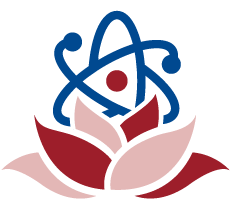| Catholic ཁེ་ཐོ་ལིག | phil. A member of the Roman Catholic Church. | རོ་མན་ཁེ་ཐོ་ལིག་ཡེ་ཤུའི་ཆོས་ཁང་གི་རྗེས་འཇུག་པ། [ཡེ་ཤུའི་ཆོས་རྒྱུད་ཀྱི་ཡ་གྱལ།] |
| cathode-ray tube མོ་སྣེ་ཟེར་སྦུག | phys. A high-vacuum tube in which cathode rays produce a luminous image on a fluorescent screen, used in televisions and computer terminals. | བརྙན་འཕྲིན་དང་གློག་ཀླད་ཀྱི་བརྙན་ཡོལ་ངོས་སུ་མོ་སྣེའི་འཕྲོ་ཟེར་གྱིས་འོད་ལྡན་གཟུགས་བརྙན་བསྐྲུན་པར་བྱེད་པའི་ཚད་མཐོའི་སྟོང་སངས་སྦུ་གུ་ཞིག |
| cathode མོ་སྣེ། | phys. The negatively charged electrode by which electrons enter an electrical device. The opposite of anode. | གློག་ཆས་ཤིག་ཏུ་གློག་རྡུལ་འཛུལ་སའི་གློག་ཁུར་མོ་དང་ལྡན་པའི་གློག་སྣེ། ཕོ་སྣེ་ཡི་ལྡོག་ཕྱོགས། |
| catheter གཅེའུ། | biol. A flexible tube inserted through a narrow opening into a body cavity, particularly the bladder, for removing fluid. | བུ་ག་ཞིག་རྒྱུད་ནས་ལུས་པོའི་ནང་རོལ་ཏེ་ལྷག་པར་གཅིན་ལྒང་ལྟ་བུར་བཅུག་སྟེ་གཤེར་གཟུགས་ཕྱིན་འདོན་པར་སྤྱོད་པའི་མཉེན་ལྕུག་ལྡན་པའི་སྦུ་གུ་ཞིག |
| Category སྡེ་ཚན། | neurosci. | |
| categorical variable སྡེ་ཚན་འགྱུར་ཆོས། སྡེ་ཚན་འགྱུར་གྲངས། | Res. | |
| Categorical inference སྡེ་ཚན་རྗེས་དཔག | neurosci. | |
| Catecholamines ཁེ་ཊི་ཁོལ་ཨ་མིན། | neurosci. | |
| Catecholamines Tests ཁེ་ཊི་ཁོལ་ཨ་མིན་བརྟག་དཔྱད། | neurosci. | |
| Catecholamine System ཁེ་ཊི་ཁོལ་ཨ་མིན་མ་ལག། | neurosci. | |
| Catastrophism གོད་ཆག་རིང་ལུགས། | geol. | |
| cataract བར་འགྲིབ། སྐྱ་འགྲིབ། | biol. A cataract is a cloudiness of the eye's natural lens, which lies between the front and back areas of the eye, directly behind the pupil. | བར་འགྲིབ་ནི་མིག་གི་རྒྱབ་མདུན་གཉིས་ཀྱི་བར་དང་། མིག་གི་རྒྱལ་མོའི་རྒྱབ་ཏག་ཏག་ན་ཆགས་ཡོད་པའི་ལྷན་སྐྱེས་ཀྱི་དྭངས་ཤེལ་མི་གསལ་བར་གྱུར་བ་ལ་གོ |
| cataplexy གློ་བུར་བཤལ་སྦྲིད། | biol. A sudden loss of muscle tone and strength, usually caused by an extreme emotional stimulus. | གློ་བུར་དུ་ཤ་སྒྲིམ་གྱི་རྐྱོང་ཤུགས་དང་ནུས་པ་བརླག་པ་ཞིག་ལ་གོ་ཞིང་། སྤྱིར་བཏང་སེམས་ཚོར་དྲག་པོའི་སྐུལ་རྐྱེན་ལ་བརྟེན་ནས་འབྱུང་། |
| Catalyze སྐུལ་སྦྱོར་བྱེད་པ། | chem. | [སྐུལ་རྫས་ཀྱིས་རྫས་སྦྱོར་ལ་སྐུལ་བ།] |
| catalyst སྐུལ་རྫས། | biol. A substance that speeds up a chemical reaction while undergoing no permanent change itself. All enzymes are catalysts. The enzymes in saliva, for example, are catalysts of digestion. | གཏན་འཇགས་ཀྱི་འགྱུར་བ་མེད་པའི་སྒོ་ནས་རྫས་སྦྱོར་ཇེ་མགྱོགས་སུ་གཏོང་མཁན་གྱི་རྫས་ཤིག སྨིན་རྫས་ཐམས་ཅད་སྐུལ་རྫས་ཡིན། དཔེར་ན། མཆིལ་མའི་ནང་གི་རྨིན་རྫས་ནི་ཟས་འཇུ་བའི་སྐུལ་རྫས་རེད། |
